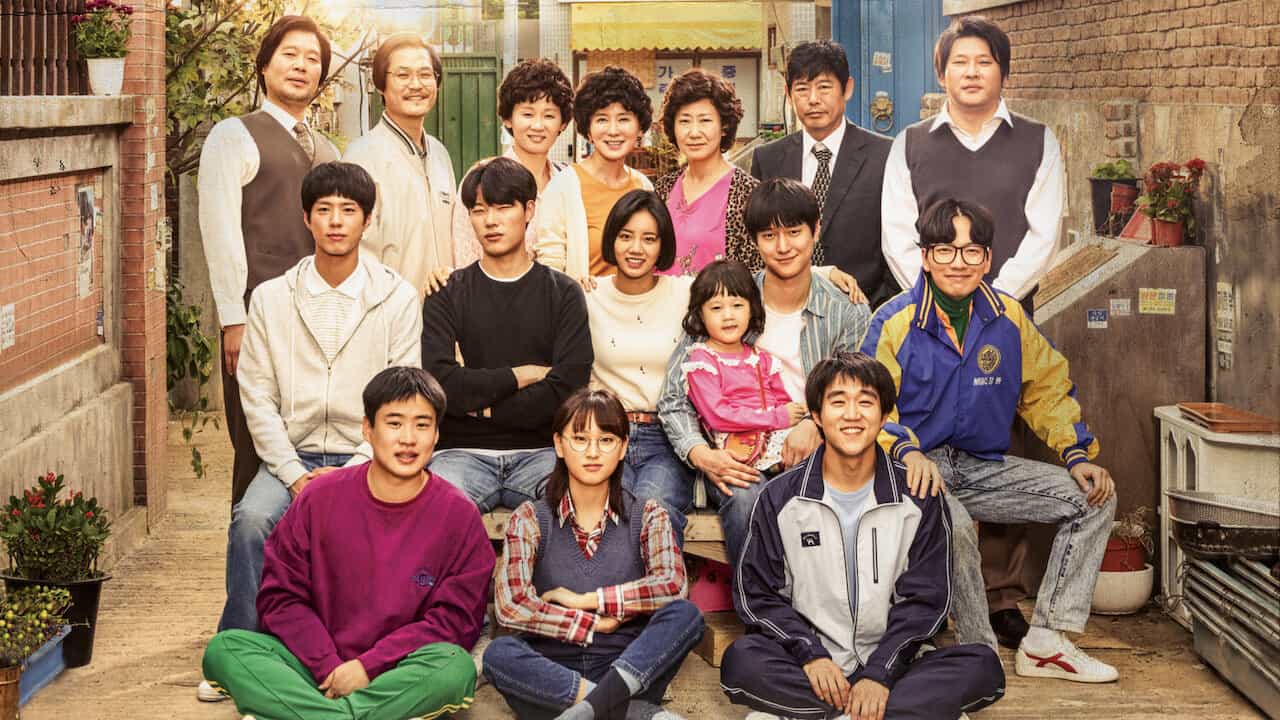A story about the lives and future of five childhood friends living in the same neighborhood. This summary briefly explains the plot of the popular South Korean drama, Reply 1988. The series, directed by Shin Won Ho and Yoo Hak Chan, was released back in 2015, and it continues to gain attention and love from audiences around the world even now.
Written by screenwriter Lee Woo Jung, the show is a three-part series with two prequels released before it, Reply 1997 and Reply 1994. Each series has different actors cast for different main roles. Reply 1988 has only one female lead, Sung Deok Sun, played by actress Lee Hye Ri, known for roles in My Roommate is a Gumiho, May I Help You?, and Moonshine, among many others.
The show also has four male leads, Go Kyung Pyo from Love in Contract and Private Lives as Sung Sun Woo, Ryu Joon Yeol from A Taxi Driver and Lost as Kim Jung Hwan, Park Bo Gum from Record of Youth and Encounter as Choi Taek, and Lee Dong Hwi as Ryu Dong Ryong. The five of them, including Lee Hye Ri’s character are all in high school and are childhood friends.
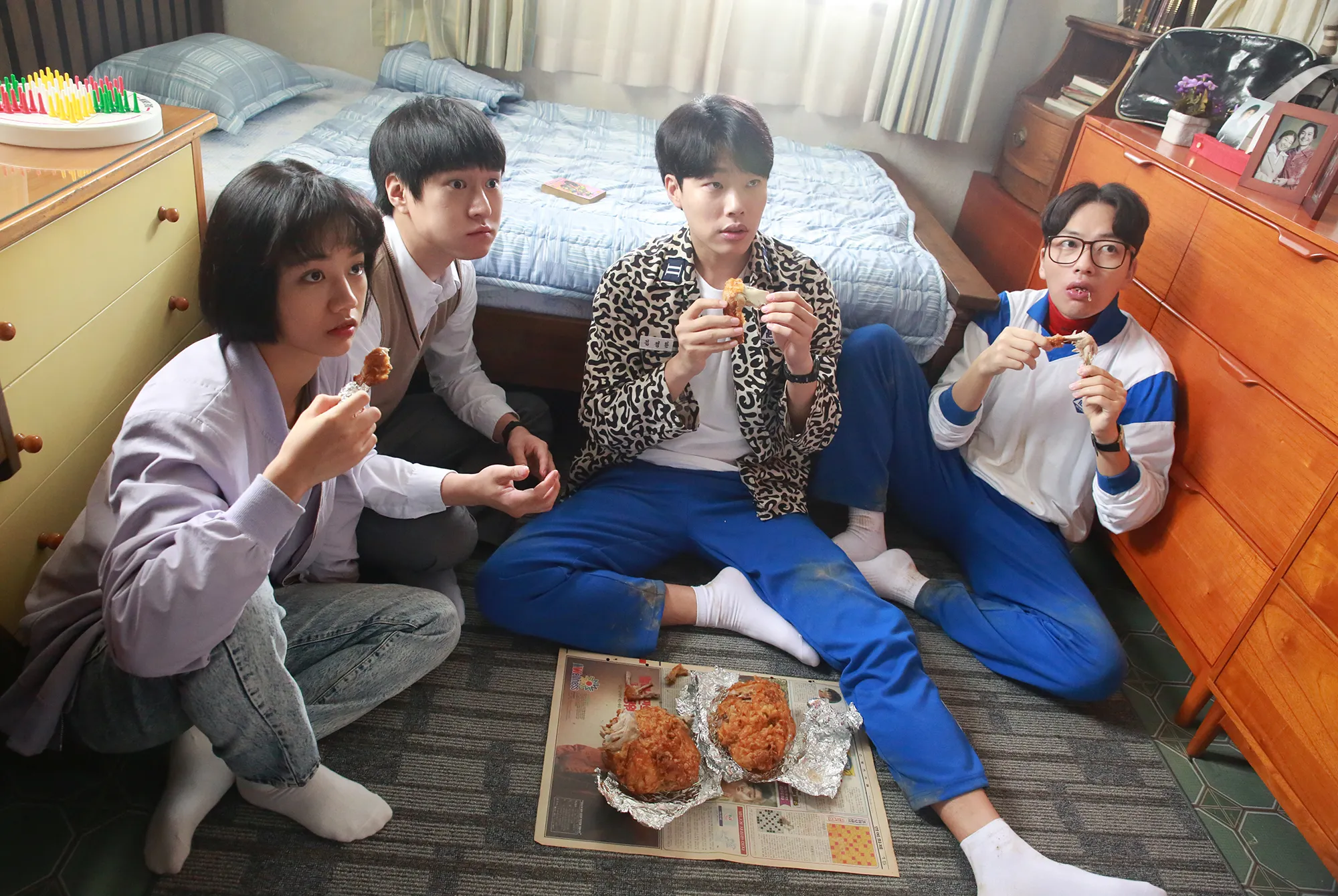
The show has a large supporting cast of actors forming families and friends of the main cast. With its twenty episodes, the show, along with its other parts, has managed to garner a lot of attention for having nostalgia-filled undertones and for being relatable to young adults making a transition to their adult lives. The show is heartfelt and warm and has something for everybody.
It almost seems separated into two parts that are still moving in parallel. There is a separate storyline for the teenagers and their lives and the parents and the problems they face, but all of it is so seamlessly put together that it does not feel awkward for once. Reply 1988, along with its other two parts, Reply 1994 and Reply 1997, are available on Netflix and Prime Videos for streaming.
Reply 1988 Storyline
The main reason why the drama is so nostalgic is how it is shot. The main leads have grown up and have had a successful life and are now reminiscing their memories. So the entire series feels like a long flashback with some moments of the present.
The group of friends in the story has all sorts of characters, Deok Sun is the sunshine girl of the group, Jung Hwan is the broody one, Dong Ryeong is the one who cracks the most jokes, Sun Woo is the one who gets teased a lot, and Choi Taek is the introvert. Together they form a relatable bunch of teenagers.
The show is set around September 1988 and thus starts with glimpses of all that was trendy and ongoing in South Korea at that time. South Korea was the host of the 1988 Summer Olympics, and the story starts with Deok Sun preparing for the role of a picket girl during the opening ceremony.
Considering how large the cast of the show is, it also has a lot of individual storylines ongoing at the same time. The first episode ends with the introduction of all the characters and the kind of lives they live. Choi Taek is a popular Go player, so he has dropped out of school. The three boys- Sun Woo, Jung Hwan, and Dong Ryung, all go to the same school.
Deok Sun is a middle child and lives with her elder sister, younger brother, and parents. Her relations with her elder sister are just like any other sibling relationship, love-hate with a little more hate on her part as she is fed up with her parents giving her elder sister better treatment just because she goes to university and is good at studying, unlike Deok Sun herself.
The relationship dynamics between the parents of the kids also get established during the first episode. There is a constant mention of events and advancements that South Korea saw during that throughout the show. It is in the second episode that Choi Taek’s character gets introduced as he returns from China after bagging the first prize in a Go competition. Finally, all introductions are over, and the story starts rolling.
The series explores the sibling dynamic and the relations between the guys of the group some more throughout the next couple of episodes. We also see very real discussions that the families have regarding money or the lack of it. Both Deok Sun’s family and Jung Hwan’s family seem to suffer financially, and the story constantly shows the struggles they had to go through because of it.
A glimmer of romance appears in the story when Deok Sun ends up developing a crush on Sun Woo, though she later finds herself stuck in a love triangle between Choi Taek and Jung Hwan. Family differences continue to be shown in the cases of Jung hwan and his relationship with his mother and Choi Taek and his family.
The story for the kids’ parents revolves majorly around them having financial worries or bad relations with other family members. Deok Sun’s parents are shown discussing their marriage and how it is not as loving as she wants. Jung Hwan’s mother and Jung Hwan also do not seem to have the best relations.
Sun Woo’s mother has troubles with her mother-in-law, enough to make her nervous when she visits them in Seoul. While the parents and children are going through life, Jung Hwan and his liking for Deok Sun grows, and he finds himself feeling jealous of Sun Woo whenever he interacts with her.
Choi Taek, who is known for being a really good Go player and winning competitions, goes to China once again for the same. This time the competition seems tough, and everyone in Korea waits for the results nervously (He doesn’t win). Sun Woo being interested in Deok Sun turns out to be a complete misunderstanding as it is not Deok Sun but Deok Sun’s elder sister, Bo Ra, who he likes.
Nobody could feel more elated than Jung Hwan upon knowing this fact. While this is happening, Choi Taek has also approached Deok Sun a few times, each time under a different pretext. Their love triangle continues to grow over the next few episodes.
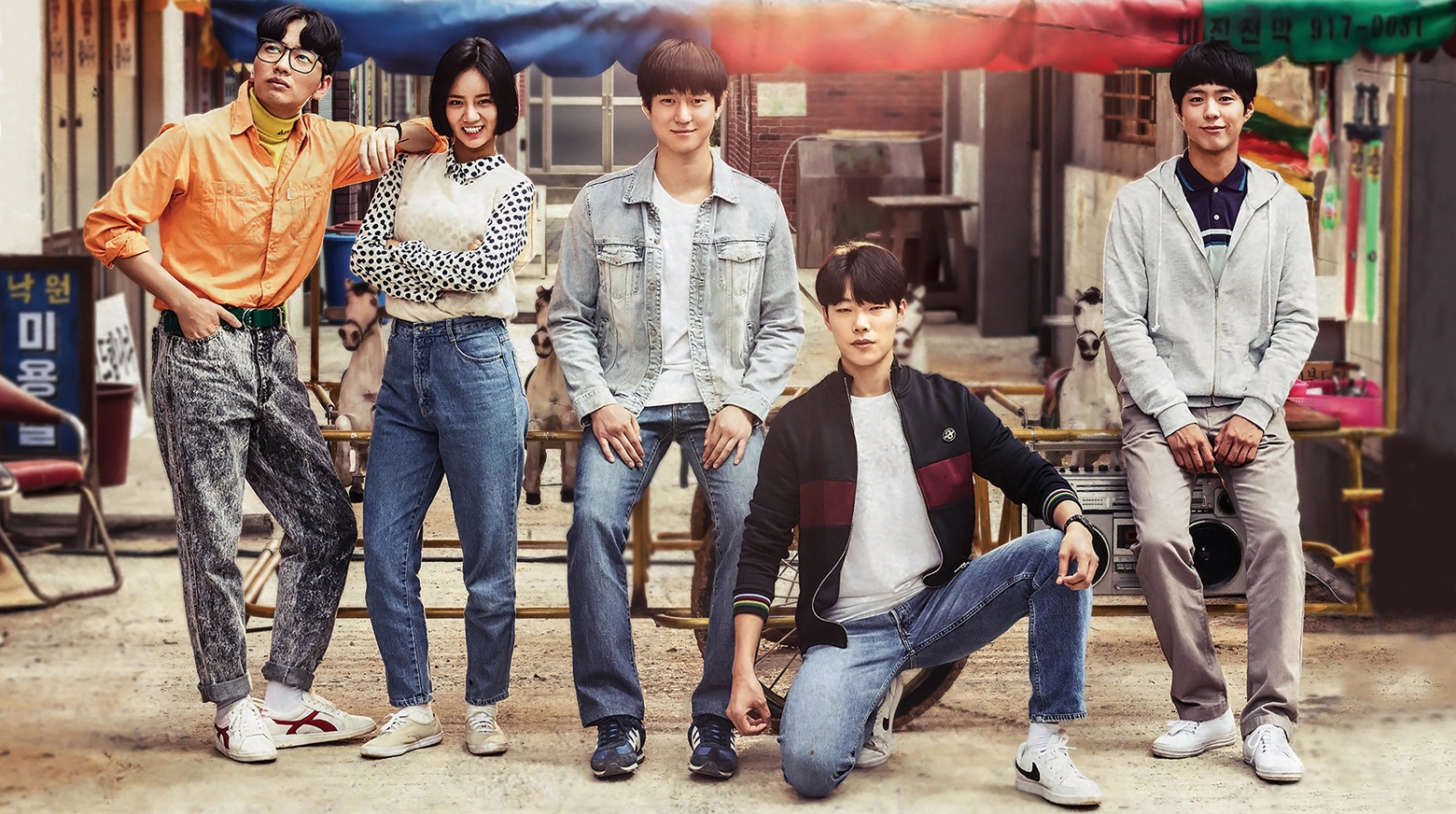
Soon the year has lapsed, and it is 1989, the year bringing more trouble for the families. Sun Woo struggles not only romantically but also with his family and finds themselves in a financially tough position. Choi Taek’s father continues to suffer mentally and eventually ends up going to the hospital because of it.
Deok Sun and Choi Taek continue to grow closer, but so does the weird love dynamic between Deok Sun and Jung Hwan. More family trouble comes along Deok Sun’s way, and she struggles with defining her relationship with each of the two boys who seem to like her. Sun Woo and Bo Ra end up secretly coming together and dating each other.
As the relationship between Deok Su and Jung Hwan grows, it also seems that Choi Taek continues to suffer, though it may not be solely because of Deok Sun. He feels under constant pressure because of his Go tournament and the fact that he lost the previous two competitions back to back.
The year 1989 comes to an end too, and quite a few things seemed to have happened and changed by the end of it. The show takes a time-lapse to the year 1994, October, when the friends and their families have all grown older. All of them come together to celebrate Jung Hwan’s birthday, and we get to see how things have changed for each of them.
The love triangle comes to an end when Jung Hwan confesses to Deok Sun but makes it all seem like a joke, confirming that the two won’t end up together. And this is when we first guess that maybe Deok sun would end up with Choi Taek, the Go player. And with this, the show wraps up all the other individual storylines, too.
Sun Woo and Bo Ra do end up together. Deok Sun and Choi Taek also marry each other sometime later. In the final scenes, we see the group of friends, all old and mature, together and back in the neighborhood to their old houses. The series finally comes to an end with Deok Sun looking back on the life she lived in this place, and her monologue plays in the background, where she bids farewell to her youth.
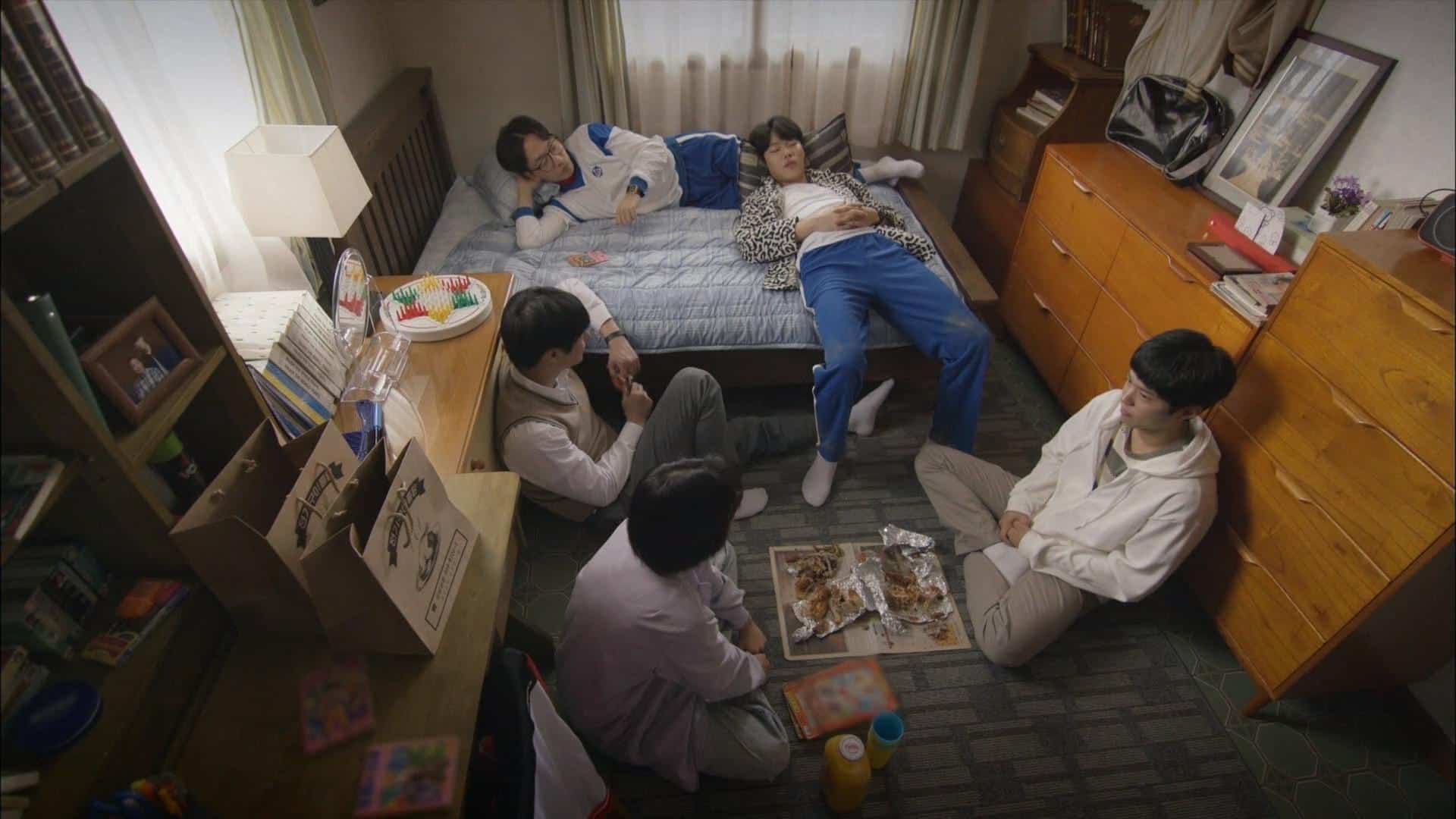
Reply 1988 Review
The Reply series may have certain references that only South Koreans may get, but the way the show has portrayed the days of young adults and their life is relatable for all. The show has a certain nostalgic vibe that can take one back to their past and youth.
This 20-episode series has been appreciated by both the audience and the critics, making it the highest-rated drama of its time. The show has the ability to make one feel like they are on the journey of life with the actors. The comedy within the show is more slapstick, and the drama and conflicts are more mellow and well-flowing.
Nothing in the show feels over the top and forceful. The actors, apart from the five main leads, have done such a great job with their local accents, gestures, and their overall acting that they lay a strong foundation for the young actors to build upon. And our young main leads don’t disappoint either.
The producers of the show Reply 1988 have managed to put out an authentic version of those times, be it with the styling or the hair or nailing the 80s use of makeup. All of this, combined with the background sets and the props used, brings alive the 1988 life of an average South Korean person.
The show has comedy, but it’s subtle, and it has drama, but that too is also not too in your face or too intense. The entire story and the intertwined lives of the characters are just so seamless and well-connected. It almost convinces the viewers that they are living with them.
The problems that are shown in the series are faced either by the younger ones or their parents, or the familial issues talked about in the show in no way feel made up or something that could never happen in real life.
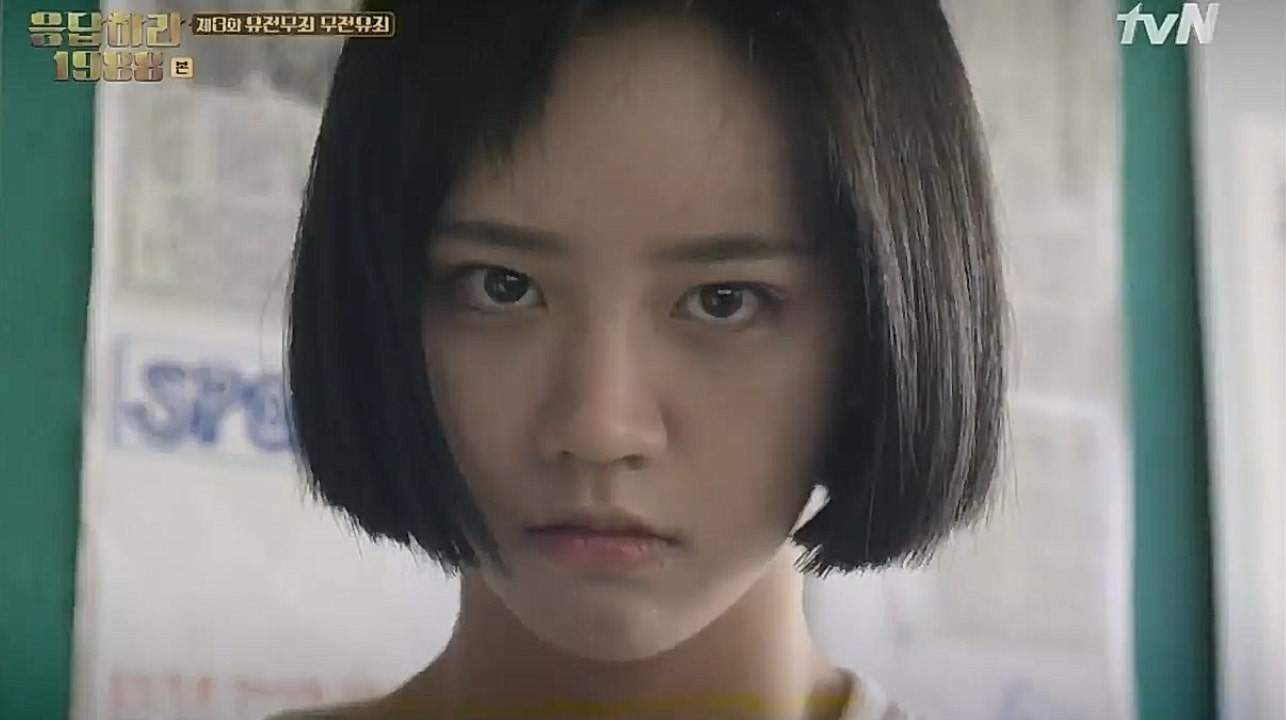
This drama has such slice-of-life qualities that it adds to the peaceful neighborhood life theme beautifully. The ups and downs that the characters experience are paired with music that is not too dramatic or that breaks the illusion of the characters being in 1988. The OSTs used in the show are relevant to the show, popular, and loved.
The storyline captures beautifully theme of childhood friendships and them going through their own change and growth. The importance of familial relationships and how families sharing a neighborhood come together in harmony and stand by each other in times of need has also been depicted perfectly.
Every theme the series covers has been done so without the need to make things obvious. The dialogue gets delivered, the story continues forward, the characters experience change and growth, and it all seems natural and organic, like a portrayal of the story of our own life.
The story has you laughing and ugly crying and appreciating the loved ones in your life, along with the characters. It is a story that will roll you in, grip you till the end and leave you nostalgic and reminiscing about the feelings of loss, love, friendships, and bonding with one’s family. The show has everything in moderation but lacks nothing at all.
The characters and the story, though set in 1988, seem valid and relatable to young adults and even older audiences in the current times. The entire cast of the show portrays characters that are all so familiar to us. The final episode of the series that wraps up the trilogy brings such a perfect end to the show.
Our Verdict
Deok Sun’s monologue at the end of her saying goodbye to her youth was a wild ride but is now a beautiful memory and a very important part of her life. It is probably a part that hits the spot for all of us watching. For the ones who have been through their youth, it is a way for them to say goodbye to their youth as well, and for the ones going through it, well, they learn to appreciate it a bit more.
So if you are looking for a show that is not draining to watch but one that will help you love life a little more, this is the show to watch.
Our Rating: ⭐ (4.5/5).

